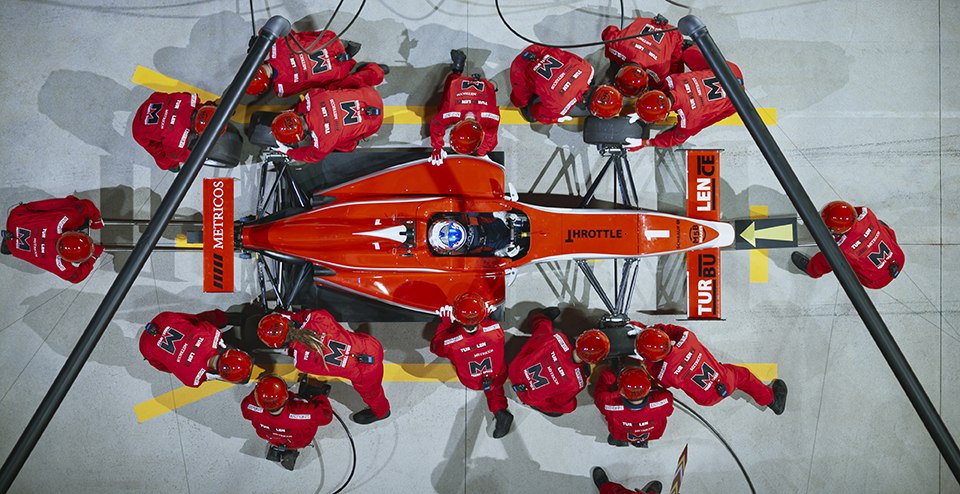High Performing Teams
"Coming together is a beginning. Keeping together is progress. Working together is success."
Henry Ford
Achieve more with multidisciplinary and self-organized teams
In a modern development organization, teams are the foundation of your organization. People no longer work together temporarily for a project, but are part of a permanent and stable team to which the work is brought. Working well together in a team is a huge challenge. Especially when teams are multidisciplinary for the first time. To support each other from different roles you have to step outside your comfort zone.
A team needs goals, discussion and collaboration to deliver results. That’s exactly why you need high performing teams: to deliver results. This creates trust, which is crucial for high performing team.

Contact Joyce
E-mail: j.vergoed@synergio.nl
Phone: +31 6 4641 2930
Every person can make a difference
How do you recognize a high performing team?
- Better solutions
By having constructive discussions, asking for help and focus on quality - Added value
By working from a prioritized backlog and let the team plan the work themself - Engaged team members
Through a common goal to which everyone contributes - High reliability
By continuing to learn and communicating openly about what is and isn’t going well


How do you create a high performing team?
You don’t create a high performing team by putting some people from different disciplines together and leaving them to their fate. A team needs a clear goal and a place in the organization, so that they can work as independently as possible and can easily coordinate with other teams. In addition, the team needs the right skills and clarity about the roles in the team. The team cannot take care of these things itself, so strong leaders are needed to take care of this.
A team must also ensure that they have a clear working method. A clear meeting structure, learning moments and division of roles guarantee this working method. Quality and predictability are characteristics of a high performing team. And last but not least, a team consists of people who work together and that is sometimes difficult. It is good to have an open conversation about team dynamics.
Please contact us if we can help you with this.
Leading the Change

Multidisciplinary teams
From delay in handovers to delivering value together .
To enable a team to deliver value, you want a multidisciplinary team. This ensures that fewer handovers are required from department to department. Handovers take time and knowledge is lost. By working together in one team with multiple disciplines, a specified product can actually be delivered instead of a seperate process step.

Leadership
From a manager to a leader .
An high performing team has a lot of responsibility and therefore requires less direct management. The role of manager thus changes to a leader who enables people to grow. The leader shows exemplary behavior in this. You pay attention to: learning and improving, ensuring that a culture of trust is created where mistakes are allowed and action is taken on signals from the teams.

Focus
From always being distracted to working from a prioritized backlog.
Agile stands for flexibility, but that does not mean that there are no strict working agreements. A well functioning team has clear roles, events, artifacts and goals. We call these the “Team Essentials”: the essential elements you need to put in place for a team to be successful. Working from a prioritized backlog, where the team picks up new work when the previous work is completed, is one element of this.

Team values
From fear of conflicts to pride and trust .
Working together is difficult. That is why it is good to not only consider the functional activities, but also to look at the collaboration within the team. Team members look at their own behavior and the influence on the team. It’s good that people are different. How can you ensure that people are empowered? And what are the values of the team that everyone commits to?
Tooling for better collaboration
We know from experience that well-appointed tools are essential to creating effective teams.
This contributes to:
- One truth of priorities and work to be done
- Alignment with other teams: what are the dependencies?
- An overview of the current status of the work
- Sharing knowledge and information

Workshop "High Performing Teams"
In many organizations it is hard work at the moment. Work pressure is high due to the tight labor market and innovations that follow each other at an increasing pace.
Based on the 4 pillars of high performing teams, Synergio has given a one-day workshop that teaches you how to ensure that your team does not suffer from this high workload.
Lizet Bary and Esmée Bertens took the participants through how managers can create Psychological Safety, Autonomy, Mastery and Purpose.


